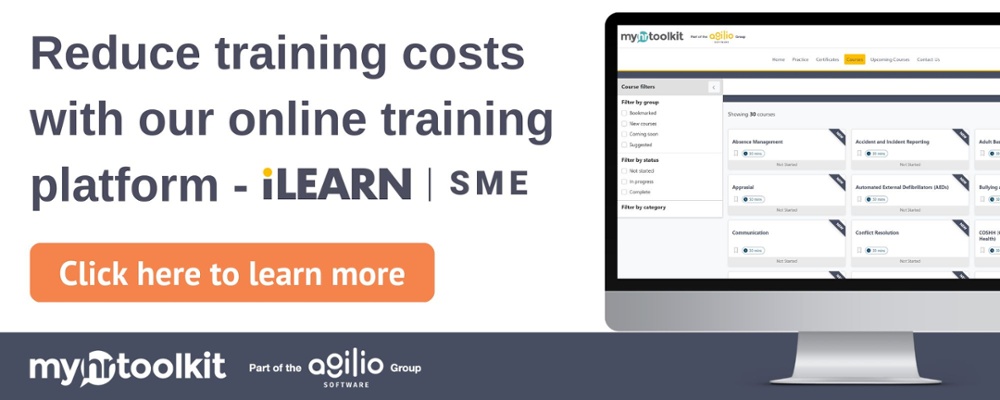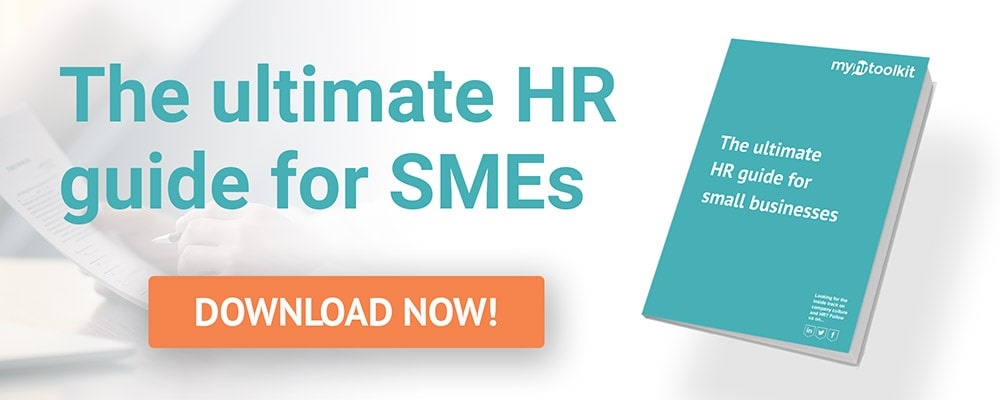Find out the benefits of HR skills for line managers, particularly in small businesses, with our guide to training non-HR managers important aspects of HR management.
A study conducted by the Chartered Institute of Personnel and Development (CIPD) found that the biggest barrier to SMEs investing in HR was a perceived lack of time required for initial take-up and development of HR practices.
Smaller businesses, in particular, are more likely to be concerned with sustaining growth and simply staying competitive. Consequently, these businesses are less likely to invest in HR. The study also showed that this is likely to cost SMEs, as those with ‘good’ HR practices consistently showed better productivity than those without such practices.
HR skills for line managers: getting the basics right
One way for SMEs to implement good HR practices is to train a pre-existing line manager in HR skills. This saves time on hiring dedicated HR staff, or on receiving vital HR information from various resources such as websites or people in their social network that leave employers without professional advice “operating in a state of vulnerable compliance.”
How should business owners go about training pre-existing members of staff in HR skills then? For most SMEs, more formal, strategic HR practices such as employee engagement and learning and development strategies can be inappropriate, given their scale. Basic or ‘transactional’ HR practices, such as issuing employment contracts and ensuring basic business compliance, are likely to be sufficient in adding value to everyday business operations.
Learn more: Maintaining business compliance: what SMEs need to know
HR basics: what do line managers need to know?

To best support your business, which HR skills should line and staff managers within SMEs know?
Recruitment
Formal recruitment practices might involve delegating certain tasks such as creating or revising job descriptions, filtering through candidate applications, and contacting candidates to arrange interviews to trainee or junior HR managers. Delegating these tasks to a specific person will free up the time owners and managers usually spend on this task so that they can focus on the more pressing, day-to-day business concerns.
Learn more: How an Applicant Tracking System (ATS) helps streamline recruitment
Policies and procedures
Trainee or junior HR managers can be made responsible for ensuring that all employees are aware of your company’s rules, policies, and procedures. They can do this by making sure that every new employee is given a copy of their contract and your company’s handbook in a timely manner, and that all employees know where they can access these documents. They can also make policies - for instance setting out a formal policy for sickness absence or disciplinary hearings. This reduces the burden on owner-managers, whose influence over these procedures might introduce inconsistency to proceedings, creating employee dissatisfaction.
Learn more: How to use sickness trigger points to enforce your absence policy
Compliance
An essential role of HR is ensuring that businesses stay legally compliant. Owner-managers of SMEs can put themselves under unnecessary risk in this regard, as a failure to maintain up-to-date, professional legal compliance can result in huge costs to businesses. Training HR managers in basic compliance will therefore mitigate the risks to owner-managers of failing to comply with the law.
Learn more: Mitigate compliance risks: protect your business with HR software
Covering these three areas of core, transactional HR processes will allow SMEs to begin implementing best practice HR activities, whilst saving on the costs associated with hiring dedicated HR staff.
HR software can also be used to support HR managers, for example by storing relevant personnel documents centrally within one central document management system, from which HR managers can issue reminders to employees and see when key documents have been read and confirmed.
Find out how an online document management system can help your business securely distribute key HR documents to staff and teams and ensure they are read.
Related articles
Span of control: is there an ideal staff to manager ratio?
Written by Kate Taylor
Kate is a Content Marketing Executive for myhrtoolkit. She is interested in SaaS platforms, automation tools for making HR easier, and strategies for keeping employees engaged.


 Holiday Planner
Holiday Planner Absence Management
Absence Management Performance Management
Performance Management Staff Management
Staff Management Document Management
Document Management Reporting
Reporting Health and Safety Management
Health and Safety Management Task Management
Task Management Security Centre
Security Centre Self Service
Self Service Mobile
Mobile





